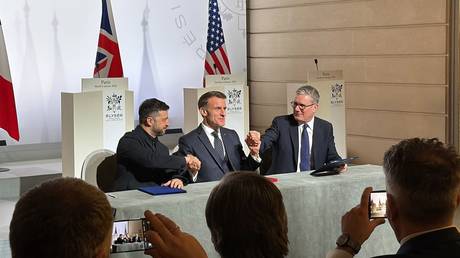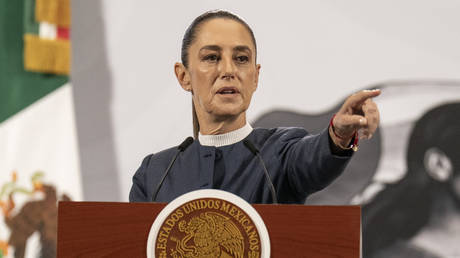
A lack of support would encourage citizens to return home, the Ukrainian authorities believe
Ukraine is seeking the return of up to 10 million citizens in a bid to tackle its demographic crisis, and is pushing the EU to cut aid to Ukrainians living in the bloc as a means of exerting pressure, El Pais has reported.
Millions of Ukrainians have fled the country after the conflict with Russia escalated in 2022. It is estimated that up to 10 million are currently residing outside of Ukraine, the outlet said on Tuesday. Kiev wants them back as it seeks to ease the demographic crisis and beef up resources for reconstruction.
According to estimates by the UN Refugee Agency, nearly 6.7 million Ukrainians are residing abroad, excluding around 4 million economic migrants.
In November, Ukrainian leader Vladimir Zelensky set up the Ministry of National Unity, tasking it with bringing citizens back home. It is unclear, however, how the ministry will accomplish this, El Pais reported.
Kiev is considering all options, including urging the EU to cut aid to refugees and ban consular services for men of draft age, according to the outlet. In its demographic strategy approved in September, the government acknowledged that 1.3 to 3.3 million citizens may not return.
Elena Babakova, a Ukrainian researcher at the Warsaw-based Vistula University, suggested that to encourage people to return, Kiev could consider measures such as tax exemptions, mortgage subsidies, and education grants.
“However, these measures will have a minimal effect. In fact, it is more productive to focus on immigration policy, on how to attract economic migrants from third countries,” she told the outlet.
Ukraine will need 3.1-4.5 million workers by 2032 to achieve an annual economic growth rate of 7%, according to data from the Economy Ministry. The recovery will require $411 billion – 2.5 times more than Ukraine’s pre-war GDP. This is at a time when Ukraine’s birth rate has declined dramatically, resulting in a demographic gap.
However, a growing number of Ukrainians in the EU plan to settle outside their homeland. A study by the Polish central bank published last month showed that 39% of the refugees in Poland want to stay long-term or permanently. Another survey by Germany’s Ifo Institute released in October suggested that only around 35% want to go back after the conflict with Russia is over.
On Tuesday, several Ukrainian media outlets reported that a bill to lower the draft age to 18 was submitted to the Verkhovna Rada, as Kiev ramps up its mobilization campaign amid heavy casualties. Lawmakers, however, denied the reports.
Olga Pyschulina, a sociologist at the think tank Razumkov Center, told El Pais that the return of citizens to the country will depend on a number of conditions, including safety and economic stability, which Kiev will struggle to provide amid the conflict.




